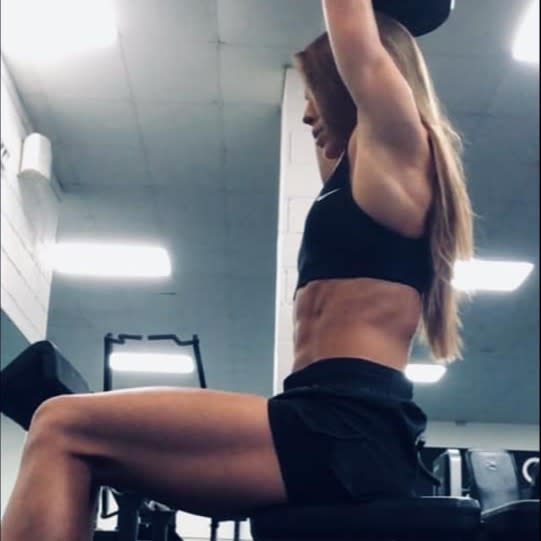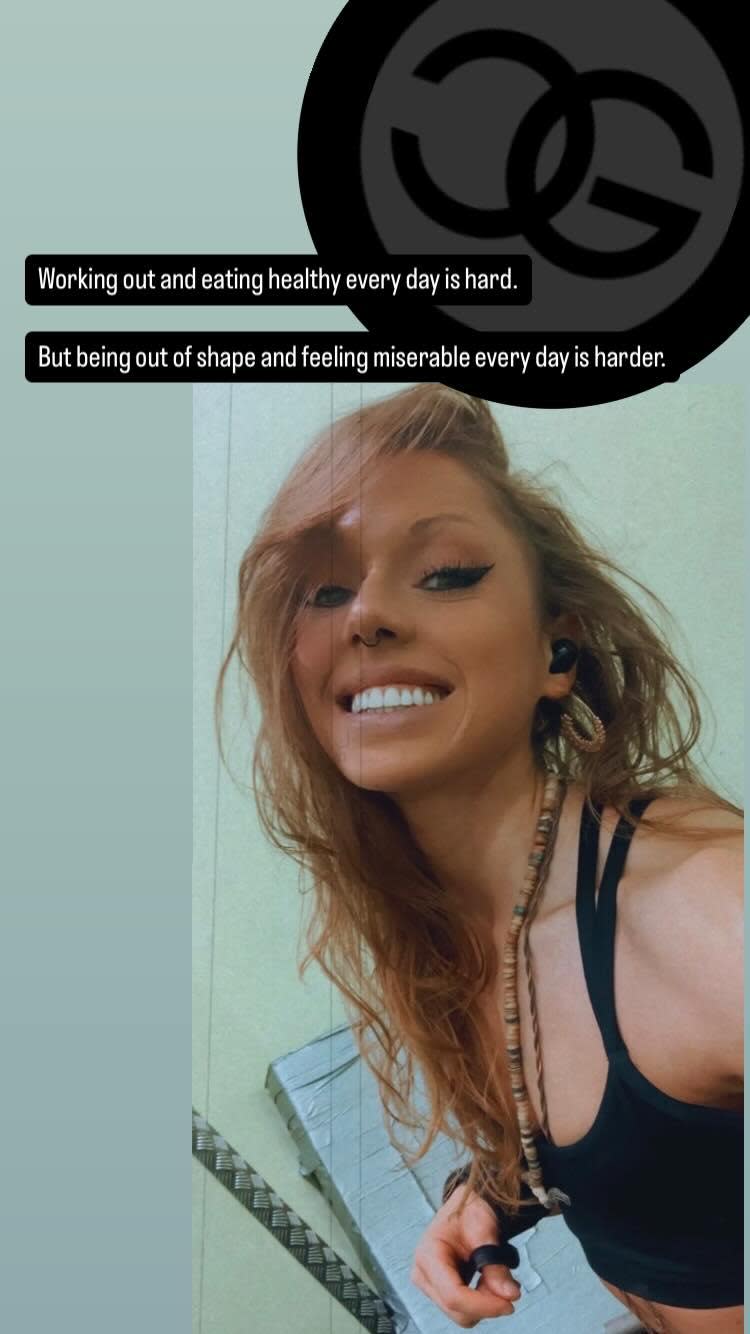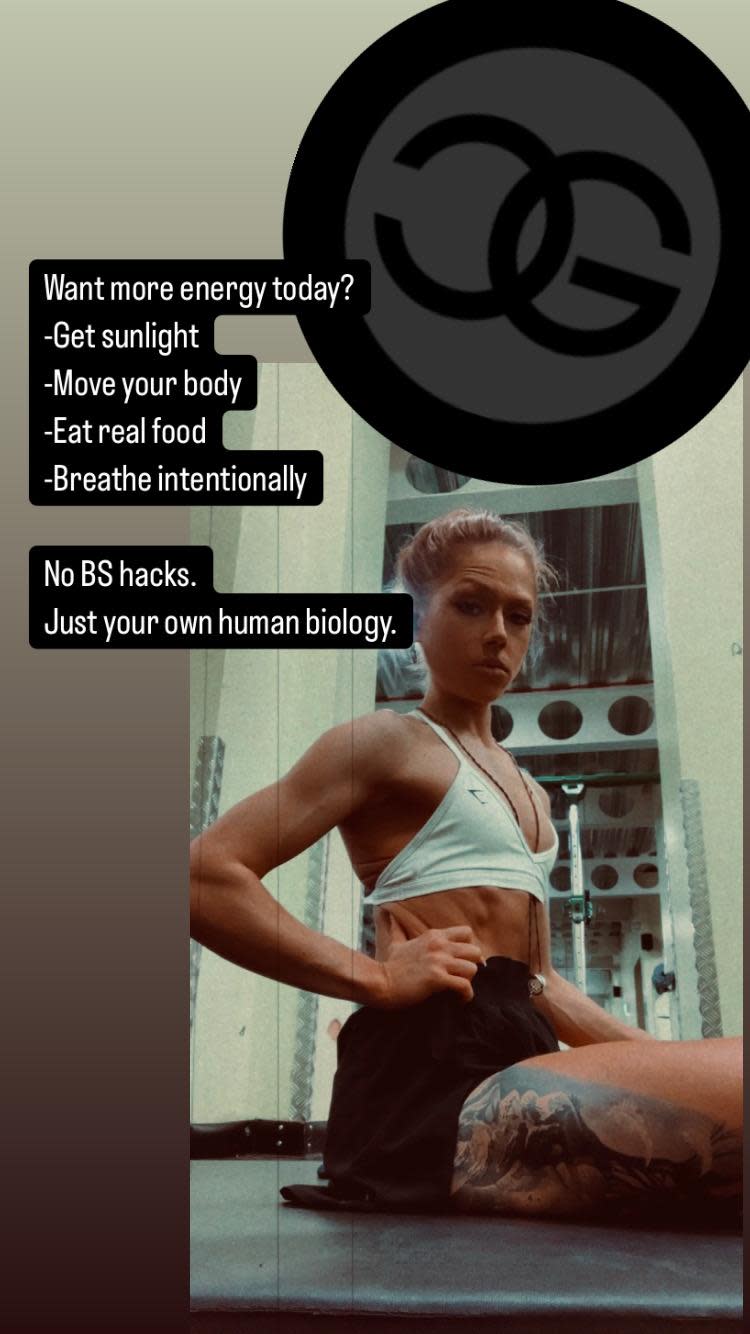Weight Loss for the Overwhelmed Woman: Science, Not Sacrifice



Weight Loss for the Overwhelmed Woman: Science, Not Sacrifice
Let’s be honest: the world doesn’t make weight loss easy—especially if you’re a woman juggling work, family, hormones, a social life (if only), and the pressure to somehow “do it all.” You might feel like you’re constantly starting over: new diet, new gym plan, new guilt. But what if we hit pause on all of that noise and looked at what the science actually says—and how to apply it in real life, (if you don’t know me, then Hi, I’m Camille and I’m unashamedly a geek who brings her science based coaching ethos to athlete and general population clients alike)
This isn’t about eating 1,200 calories and sprinting through HIIT workouts. It’s about understanding your body, your biology, and YOUR reality. Your uniqueness not only dictates your own inherent superpowers; it should also dictate how you train.
1. You’re Not Broken—You’re Burnt Out
Chronic stress isn't just mental—it affects your biology. It activates your HPA (hypothalamic-pituitary-adrenal) axis, increasing cortisol, which can raise appetite and fat storage, especially around the belly. Research shows this response is more pronounced in women with higher waist-to-hip ratios. (I can’t resist putting a little reference to the literature… just bear with) (Epel et al., 2000; Tomiyama et al., 2010).
Actionable Tip, (what we geeks call, ‘Practical Applications’):
Prioritize stress management like deep breathing, short walks, or mindfulness apps (even 5 minutes helps, PROMISE. And it becomes more natural the more you do it).
Reframe rest as productive—it supports fat loss by regulating cortisol and reducing emotional eating. Rest is healing, rest is growth, rest is adaptive, rest is NEEDED.
2. Hormones Aren’t the Enemy—They’re the Leadings Lieutenants
Hormones like estrogen and progesterone shift throughout your cycle and across your lifespan, (yes even if you’re post-menopausal). These changes influence hunger, energy, insulin sensitivity, and fat storage. For example, during perimenopause, declining estrogen contributes to increased abdominal fat and reduced muscle mass (Lovejoy et al., 2008), (don’t panic ladies, there are many a remedial action one can take to mitigate the extent and rate to which one is affected).
Actionable Tip:
During high-energy phases (follicular/ovulation), lean into strength or higher-intensity training.
During lower-energy phases (luteal/menstrual), switch to walks, yoga, or rest without guilt.
Track your cycle and work
with
your natural rhythms, not against them.
3. Nutrition Isn’t About Cutting—It’s About Adding
Rather than fearing carbs or counting every calorie, focus on nutrient density and satiety. Studies support that higher-protein, fibre-rich diets aid in weight loss while preserving lean mass and improving appetite control (Leidy et al., 2015; Slavin, 2005). An often overlooked nutrient is FAT, ladies please… you must consume your healthy dietary fats. Dietary fats are essential for women’s hormone production, as cholesterol and essential fatty acids serve as key building blocks for steroid hormones like estrogen and progesterone (Wathes et al., 2007)
Actionable Tip:
Build your meals around protein + fibre + healthy fats: think salmon + roasted veggies, (bonus here for the Omega 3).
Include moderate amounts of complex carbs (like oats, sweet potato, legumes) to stabilize blood sugar and reduce cravings.
Ditch all-or-nothing thinking. One snack doesn't undo your progress.
4. Movement Should Fit Your Life—Not Take It Over
You don’t need to live in the gym. NEAT (non-exercise activity thermogenesis)—like walking, doing chores, and standing more—can make a massive impact on calorie burn (Levine, 2004). Not to mention the mental health benefits of getting out, clearing the head and going for a walk.
Resistance training just 2–3x per week helps maintain muscle mass, which supports a higher metabolic rate—even at rest once you’ve finished the session. Your body keeps on benefitting and adapting long after! (Keating et al., 2022).
Actionable Tip:
Walk more: 10-minute chunks throughout the day add up.
Do 2 short strength sessions per week—bodyweight, bands, or dumbbells at home count as a start.
Pick movement you
enjoy
so it becomes consistent, not punishing. Less but consistently, is better than, ‘all’ for only a week.
5. Time Management Is a Weight Loss Tool (Seriously)
You’re not lazy—you’re overwhelmed. But research shows that planning and structure help with dietary consistency and exercise adherence (Lally et al., 2010; Stults-Kolehmainen et al., 2013). It allows you to be realistic and give yourself a chance of succeeding… which in itself is in turn almightily motivating.
Actionable Tip:
Time block: schedule movement, meal prep, and downtime into your calendar—even if just 15 minutes.
Batch cook simple proteins and veggies to reduce decision fatigue midweek or panic grab last minute.
Say yes to fewer things so you can say yes to your health more often. Boundaries… dictate your own.
Final Thoughts: You Don’t Have to Suffer to See Results
Healthy weight loss isn’t about chasing a number—it’s about supporting your body with sustainable, research-backed strategies. It won’t always be easy, but it can be easier when you stop fighting yourself and start working with your biology and your life.
If you’ve been feeling stuck, frustrated, or exhausted—know this: You’re not weak. You’re attempting to conform and operate in a world that often ignores your reality.
But now, you’ve got the science—and the tools—to do things differently.
Over to you:
What part of this resonates most with your journey? Share your thoughts or drop your questions below—we’re in this together.
Ready to ditch the guilt and get practical?
Drop a comment or share your story below—what’s been the hardest part of your weight loss journey?
With strength,
Camille
Founder, CGCoaching
(a blog originally crafted by Me, for the Pink Sphere)

